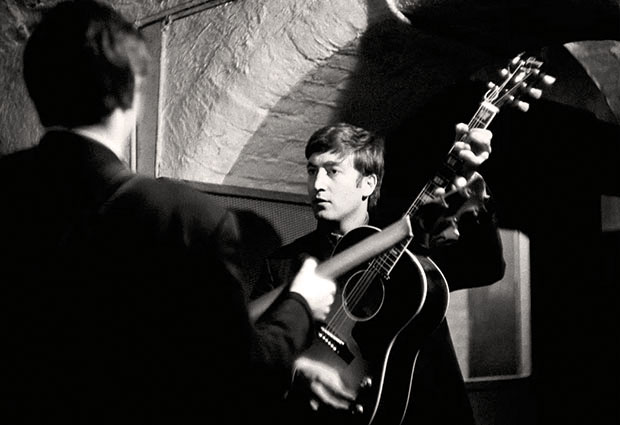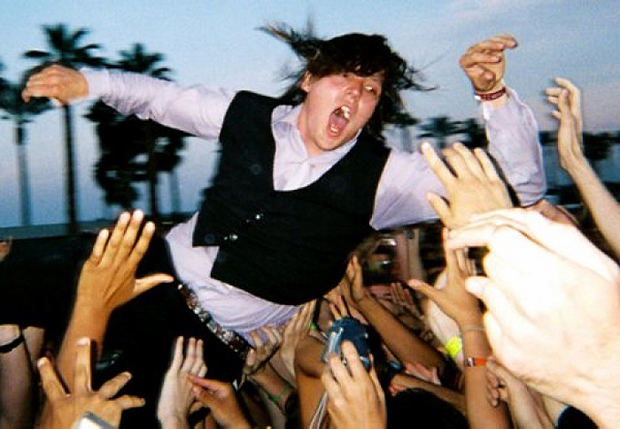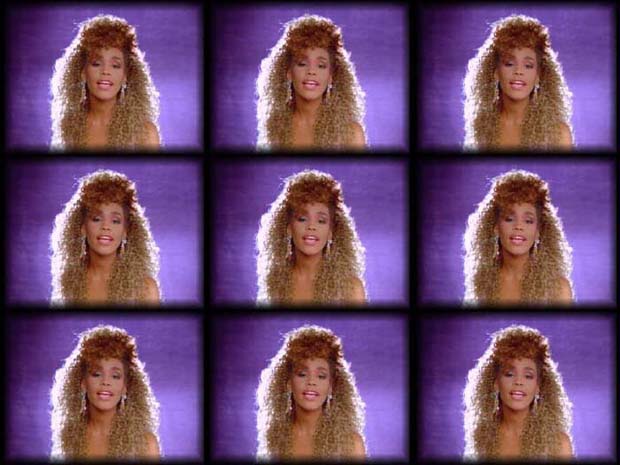
|
|
|
I just re-discovered an email I wrote to two friends about five years ago, concerning the importance of aesthetics in music, and thought it might be fun to post here: I wasn’t totally dismissing the importance of image within music. I think that it’s vitally important in this day and age. I’m a graphic designer for God’s sake, so I understand how image can actually help people’s appreciation of music if used effectively. What I was trying to say is that there is definitely a tendency for people, particularly people in the music press, to be obsessed with image as the main form of communication. Like I said before, it's a case of “the way you say it rather than what you’re saying” that counts. The medium is the message, etc., etc... Steve sent me a Sun Ra quote where he says, “it’s not what you say of the music. It’s what the music says of you.” That’s kind of where I’m coming from. It seems the phenomenon I call the "Fake Soul Lip Quiver" is still very much in force these days. Every time I walk past the television at home I'm submitted to this fakery. I guess Whitney Houston started all this in the late-Eighties, the cocaine-soul era. It's hilarious, and incredibly depressing to me, that quivering lips is the modern day indication that something is soulful. I just cannot believe that these self-professed divas can actually continue to get away with it. It is hard to do, but who really cares about vocal gymnastics? Having said all this, I caught "I Will Always Love You" on the radio the other day and was really taken aback by how amazing the first forty seconds of that song are! If you lose the chorus then it's on a par with some Nina Simone. It almost drives me to tears when I do occasionally encounter things like X-Factor on the television and people's inability to distinguish between the real and the fake. Anyway, I guess this all just a question of whether you consider music to be entertainment or art, and I really can't waste my energy discussing it in regards to modern culture. I just wish we could get Otis Redding on X-Factor and finish the whole fucking thing! If we do eventually encounter aliens and they want to know about the human condition, we just need to put on an Otis Redding forty-five and we're all set. If their advanced civilisation can do better, then get them to send me a tape! I know what you’re saying about magazines being a flawed medium, I understand that, but at the same time I disagree with it. Yes, radio, or even the internet, is the purest form for music but the written word or imagery can also play a big part in people’s understanding of music. I remember being 13 or 14 years old, skiving off school and going to the library and seeing pictures of Sonic Youth in Sounds magazine and thinking “what is going on?” or seeing pictures of U2 in a desert landscape and thinking “these guys are from another planet!!”. It might sound naïve to say that I knew I would like those bands’ music just by seeing pictures of them, but it’s true. It's no different for kids today reading the NME and seeing people that they can identify with. But there is a fashion in music that just deals with surface almost as its main form of expression and I find that ridiculous!! Image does play an important role in people’s appreciation of music, though. The fact that I spend my time working as a designer proves that I believe in its existence. If design or image is successful then it should co-exist or add something extra to the music. The first Joy Division record, Unknown Pleasures, is a classic example for me of how design can work to create an image for a band. I think that that record cover did more for the image of Joy Division than the clothes the band wore, or Ian Curtis’ dancing, or Anton Corbijn’s photography. If you see that image on its own then it doesn’t work, but it works so perfectly in tandem with the music that it’s impossible for me to separate the two in my mind. It’s a pretty heavy subject to deal with I think and impossible to draw any conclusions from because it’s so subjective… There are ways in which the image of a band can backfire, though. I think the Arcade Fire record is totally amazing, even if I seem to be own my here (as usual!). But, I’ve seen pictures of them in the music press recently and think “what a bunch of arseholes!”. I’m trying to steer clear of seeing any pictures of them, seeing them live, reading interviews, or hearing other people’s approval/disapproval of them because I know that it will affect my judgement of them. It shouldn’t do, but it will. I noticed that their record was voted record of the year in Uncut magazine and I guess Mojo magazine too, but I totally didn’t want to find that out. Hope that makes sense! I understand what you mean about mainstream music and its relation to the masses. That is kind of the basis of my argument here. That kind of music is catering for the majority of people who are not passionate about music in the same way that you and I are. I’m talking about music which the majority of people are accepting of and not about what we consider to be ‘underground’ music. I think that underground music is probably more interesting, varied, and exciting than ever before. There’s so much stuff and it's so fragmented that it’s impossible to have any knowledge of most of it. I’m beginning to see that more and more as a positive thing. The Internet is fragmenting music more and more, too, and also shifting people’s focus back onto the music. I guess that this is a positive thing. I got quite excited about the Internet being some kind of Utopian medium for music, but it’s not gonna happen is it? I’m convinced that the CD will be an outdated format in ten years' time. More and more people are buying or downloading music online and I can see the benefits of that. You can preview the songs first and also you can buy them at any time of day, which I think is really cool. There are also loads of problems with it, as you know. The album as an entity or one common thought is being outdated in this new era of online music. It’s possible to download whichever songs you want from the album rather than having to buy the whole record. I find this really sad and it drastically alters music as an art form. To me, records like Pet Sounds or SMiLE just do not work unless you hear the album as a constant form of expression, so many people are going to be missing out on hearing music in that way. But, music is very rarely made in that way anymore and I’m convinced that the way music is sold (or played) has a big effect on the people making the music in the first place. Probably in the same way that Brian Wilson was affected by the way The Beatles were constructing albums in the Sixties. The fact that there is no product when you download a file from the Internet is something that I find quite confusing. I love records!!!!! And because of the things I mentioned earlier, I believe in the role of design within music. That is totally being eroded by Internet downloads and that might be one of the reasons why the music industry is becoming more and more obsessed with fashion. If you download music from the Internet then you don’t even have a record to put on your shelf or a CD to put on your rack, or whatever... You just get a digital file to put on your iPod, or something. Nobody has any idea of the kind of music that you’re listening to and I think that that is actually quite important. Having some kind of visual identity with the music is key to me. Just having the focus on music is great, I think, but there has to be a visual aspect to it as well and I honestly believe that is why there is a shift in the role of image or fashion within the music industry right now. I remember having a discussion with you about the importance of Sixties music in comparison to contemporary music but I don’t think it’s possible to draw any conclusions from it. I wish you hadn’t used The Beatles as a comparison, though!!! They’re an entity all to themselves, bringing new forms of art appreciation into public view, and single-handedly instigating virtually every major change in the music industry in the Sixties. They transformed modern music between their first single, "Love Me Do" in 1962 and "Strawberry Fields Forever" in 1966. That’s four years!!!! In that time period they released twelve singles, seven albums, two movies, and played, I guess, over four hundred shows!!!! Four years is the amount of time Oasis would take to make two records that are entirely based around a Beatles b-side anyway! So, it’s kind of impossible to say. The Beatles showed everyone the possibilities of music, though. The Beatles were probably at their most vital in 1962 when they returned from Hamburg and began their residency at The Cavern Club in Liverpool. Playing twelve-hour shows for months on end, winning-over audiences every night and developing their own sound, giving them a swagger and confidence that is unmatched in modern music. This is one of the most interesting and pervasive periods in music history to me, almost as if The Beatles were being kept secret by their Liverpudlian audience. The Cavern era, before they secured their first record contract, is such a magical moment in time. The Beatles were riding the crest of the wave on the verge of stardom, and they knew it! Unamplified in a dank cellar, crafting their beautiful songs of love and hope is the way that I like to think of The Beatles. Their music has always been about freedom but at no point were they as uninhibited as they were in Liverpool in 1962. John Lennon growing out his rockabilly quiff and adopting his Beatle bangs is a defining moment in popular culture, signifying a shift from post-war depression to the hopefulness of the Sixties, and beyond. I’ve been reading the Richard Meltzer's book recently. It’s pretty crazy but interesting reading. I’ll have to lend it to you at some point. I found an article on the Internet recently where he discusses the decline of innovation that started to happen back in the Sixties: "in the Sixties... every time Dylan, The Beatles, the Stones, or The Kinks did an album, they were so conscious of dealing with new turf, innovation was so crucial to what they were doing. New material, new plagiarism, whatever you want to say. By about 1966, 1967, they had strip-mined every continent of source material, of available musical, y'know, concept, idiom. By the time the ‘US psychedelic Sixties’ kicked in, there really wasn't much left to do except, well, stand still, perfect your shtick, score bigger budgets, get fussier about your mix and take six months to do an album. Like the Doors, who were a great, great, GREAT live band. I saw them about 40 times before their second album came out but I don't think they did one and a half good albums. It was very rare after about 1967 for a band to be capable of doing two or three decent albums.” I find that really interesting… I don’t find innovation or originality to be important players in music, though. It’s impossible to find completely free expression-of-self in our society. As long as people find a medium for their own self-expression then that is fine. Why should anyone be obsessed with trying to produce something completely original? Whether it’s art or music (they’re both the same thing to me anyway) it doesn’t matter whether people make comparisons with things that have happened in the past. As long as what is being said is honest and true, then that is all, that is the only thing that's important. It’s the first thing I look for in any art. I’m amused by the fact that Dylan going electric would upset so many 60s “radicals”. Particularly as the sentiment of the songs was exactly the same. I guess it’s just because it didn’t fit into their blinkered view of the American folk music tradition. It's just another indication of how narrow-minded the Sixties could be. It doesn’t matter if music is loud or quiet or if a painting is in colour or black and white, they are just surface issues that you have to look beyond. |
|









